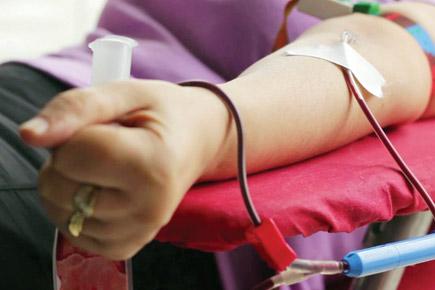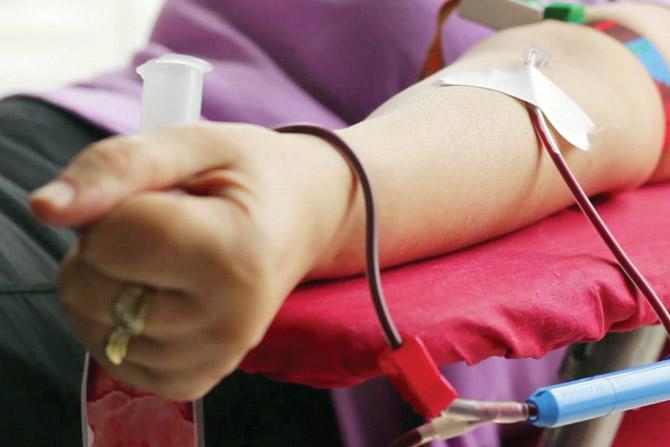In a recent development, people travelling to India from regions affected by Zika virus like South East Asia, Europe, South America and Africa, will have to wait for 120 days before they can donate blood


ADVERTISEMENT
In a recent development, people travelling to India from regions affected by Zika virus like South East Asia, Europe, South America and Africa, will have to wait for 120 days before they can donate blood. Also, if any person is affected by viral infection, they will not be allowed to donate blood before two weeks of recovery. These are some of the new directives that have been sent by Maharashtra State Aids Control Society (MSACS) to all the blood banks in the state, following guidelines issued by the Union Health Ministry.
Curbing spread of virus
Zika is primarily transmitted by the Aedes mosquito. People suffering from the disease can show symptoms like mild fever, skin rash, conjunctivitis, muscle and joint pain and headache. After the World Health Organisation (WHO) declared a public health emergency for the virus, the National Blood Transfusion Council (NBTC) sent an office memorandum to all states of the country. Acting as per the advice released by MG Nimje, under-secretary to the Government of India and NBTC, MSACS sent a letter mentioning the new instructions to blood banks, in order to curb spread of the virus in the state.
It’s mandatory
Confirming the news, an official from MSACS said, “On Thursday, we released the letter to all blood banks. These are government rules that need to be followed by everyone.”
As per the new guidelines, any person who has recently visited any of the Zika-affected countries will not be allowed to donate blood before 120 days as it may assist in spreading of the virus. The doctors and medical staffers carrying out transfusion, has also been instructed to check the medical history of donors.
“It has now been made mandatory to check the travel history of donors to find out whether they have recently travelled to any of the Zika-affected countries,” said Dr Srikala Acharya, director of MSACS.
 Subscribe today by clicking the link and stay updated with the latest news!" Click here!
Subscribe today by clicking the link and stay updated with the latest news!" Click here!






